People Whose Actions Shaped The World
Here are some examples of the people whose decisions and actions shaped the world. If you'd like to learn more, we invite you to schedule an appointment to have a chat session with us.
It's important to remember that nobody is perfect, and historical figures are complex individuals with multifaceted legacies. Some people's actions brought profound benefit and progress to humanity, while others' decisions resulted in tremendous suffering and destruction. Many figures embody both aspects - their contributions may have advanced civilization in certain areas while simultaneously causing harm in others. Understanding these complexities helps us develop a more nuanced appreciation of history and the enduring consequences of human choices across time.
We, the IDHR, truly wish for everyone to bring happiness and progress to this planet. Let's all strive to make choices that leave a positive legacy for future generations!

President George Washington
Established crucial precedents that shaped the American presidency and democratic governance. As the nation's first president, he voluntarily stepped down after two terms, setting a tradition that lasted until Franklin Roosevelt. Washington's Farewell Address warned against political parties and foreign entanglements, influencing American foreign policy for decades. His leadership during the nation's formative years helped establish the United States as a stable republic and earned him recognition as the "Father of His Country." However, Washington owned enslaved people throughout his life, which contradicted the nation's founding ideals of liberty and equality.
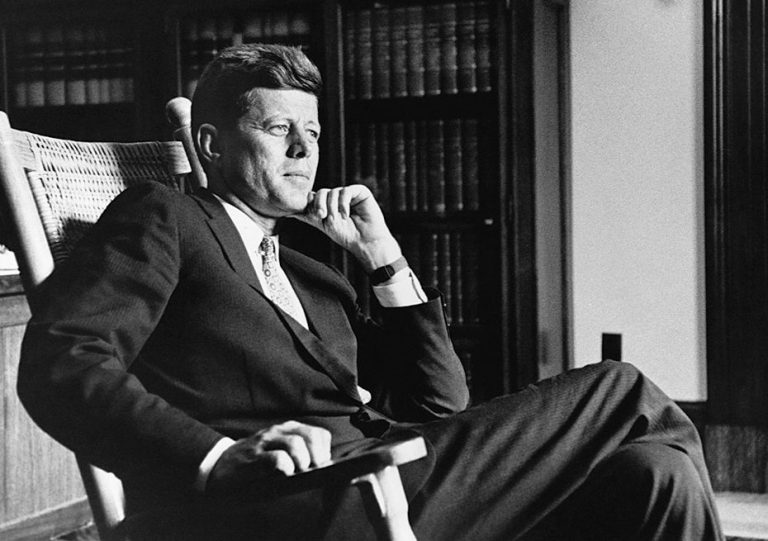
President John F. Kennedy
Transformed American politics and global relations during his brief presidency. His charismatic leadership inspired a generation through initiatives like the Peace Corps and the space program's moon landing goal. Kennedy's handling of the Cuban Missile Crisis helped prevent nuclear war, while his advocacy for civil rights began shifting national attitudes toward racial equality. However, his administration also authorized the failed Bay of Pigs invasion, and his personal life included numerous extramarital affairs that were hidden from the public. His assassination became a defining moment in American history, cementing his legacy as a symbol of hope and progressive change.

President Abraham Lincoln
Preserved the Union during America's greatest crisis and fundamentally transformed the nation's understanding of freedom and equality. His leadership during the Civil War demonstrated unprecedented presidential power in times of national emergency. The Emancipation Proclamation began the process of ending slavery, while the Gettysburg Address redefined American democracy as government "of the people, by the people, for the people." Lincoln's presidency involved controversial expansions of executive power, including suspending habeas corpus and press censorship. His assassination made him a martyr for the causes of union and freedom.
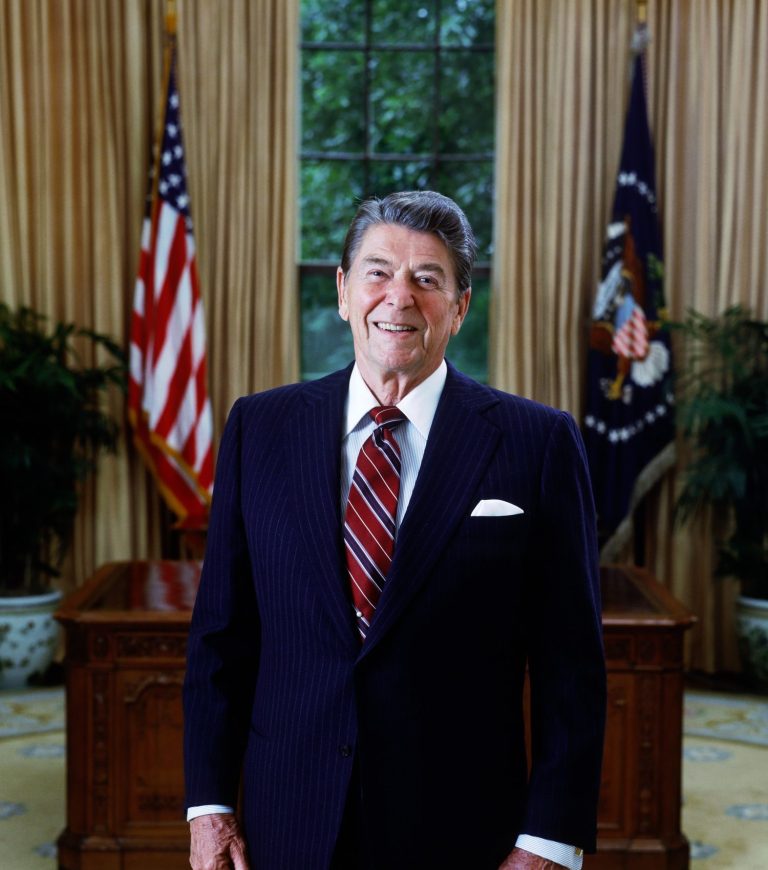
President Ronald Reagan
Reshaped American conservatism and helped end the Cold War through his aggressive anti-communist policies. His economic philosophy of supply-side economics, known as "Reaganomics," emphasized tax cuts and deregulation that influenced economic policy for decades. Reagan's communication skills earned him the nickname "The Great Communicator," and his optimistic vision of America restored national confidence after the turbulent 1970s. His administration was marked by the Iran-Contra scandal, where officials illegally funded Nicaraguan rebels, leading to several criminal convictions. His military buildup and diplomatic pressure contributed significantly to the Soviet Union's eventual collapse.
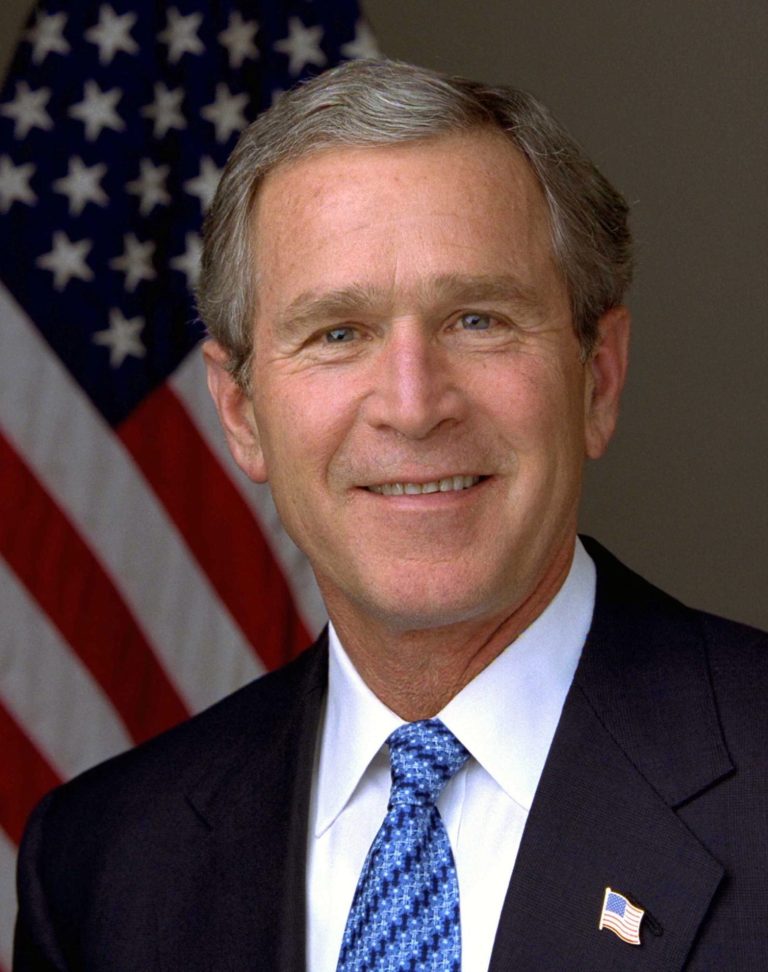
President George W. Bush
Led America's response to the September 11, 2001 terrorist attacks, fundamentally altering American foreign policy and domestic security measures. His administration launched the "War on Terror," including invasions of Afghanistan and Iraq that reshaped Middle Eastern geopolitics. The creation of the Department of Homeland Security and passage of the USA PATRIOT Act expanded government surveillance powers. The Iraq invasion was based on claims about weapons of mass destruction that proved false, and his presidency ended with the 2008 financial crisis. Bush's presidency was also marked by the 2008 financial crisis, which had global economic repercussions.
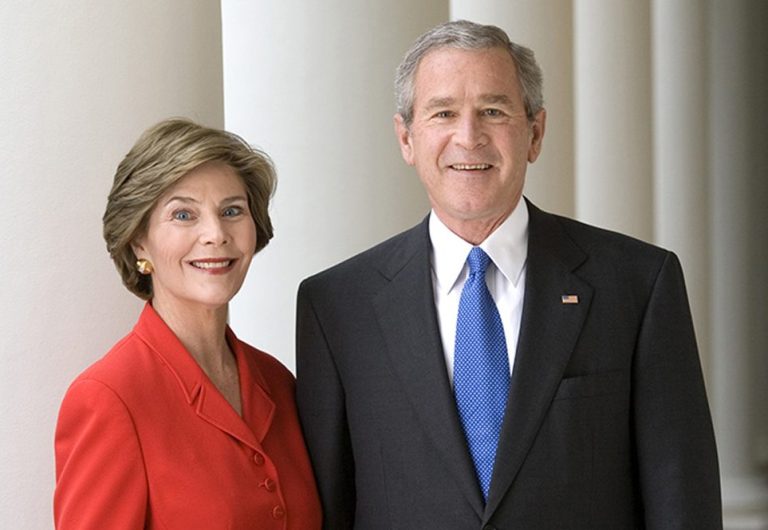
Laura Bush
Redefined the role of First Lady through her focus on education, literacy, and women's rights globally. Her advocacy for library funding and reading programs highlighted the importance of education in American society. Following 9/11, she became a prominent voice supporting women's rights in Afghanistan and other countries. Her dignified public presence and independent advocacy work expanded expectations for future First Ladies' involvement in policy issues. Critics sometimes felt she could have used her platform more boldly to address controversial domestic issues.

Kamala Harris
Broke significant barriers as the first woman, first Black person, and first person of South Asian descent to serve as Vice President. Her career as a prosecutor and senator focused on criminal justice reform and civil rights issues. As Vice President, she has been assigned crucial roles in addressing immigration, voting rights, and international diplomacy. Her historic election represents a milestone in American political representation and gender equality. However, both Kamala and President Biden faced criticisms for their support of the LGBTQ+ community and related issues.

President Joe Biden
Brought decades of legislative and diplomatic experience to the presidency during a time of national division and global challenges. His long Senate career included leadership on issues ranging from crime legislation to foreign relations. As Vice President under Barack Obama, he played key roles in economic recovery and foreign policy. His 1994 Crime Bill, which he authored, is now criticized for contributing to mass incarceration, and his presidency has faced criticism over the chaotic withdrawal from Afghanistan and handling of inflation. His presidency has focused on addressing the COVID-19 pandemic, climate change, and restoring international alliances while dealing with significant political polarization.
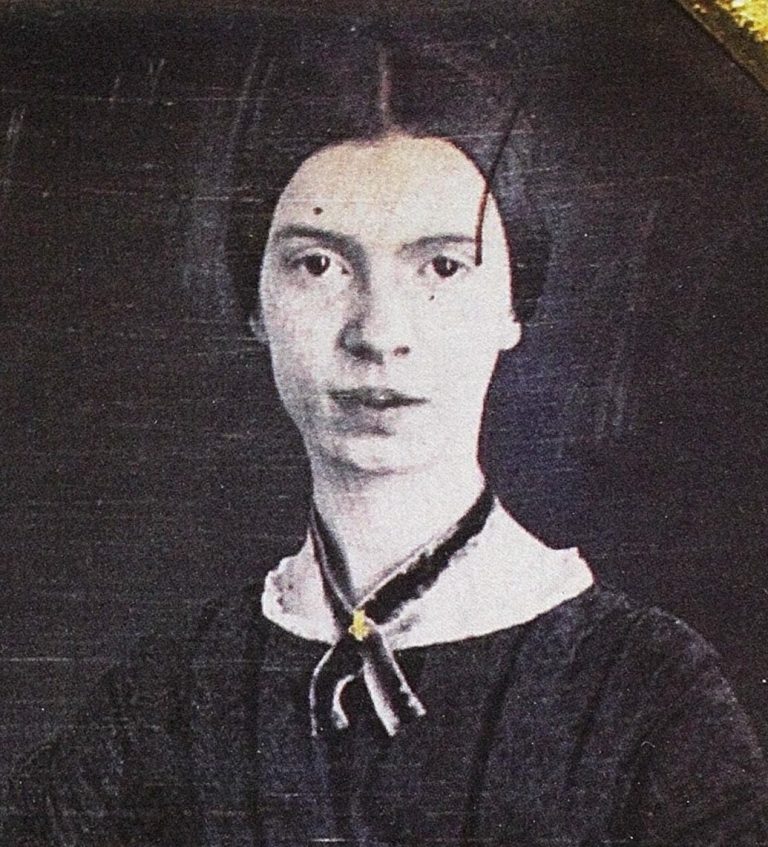
Emily Dickinson
Revolutionized American poetry through her innovative use of unconventional punctuation, slant rhyme, and compressed language. Her reclusive lifestyle produced over 1,700 poems that explored themes of death, immortality, and nature with unprecedented psychological depth. Though only a few poems were published during her lifetime, her posthumous recognition established her as one of America's greatest poets, influencing generations of writers and changing how poetry could express the human experience.

Edmond Locard
Revolutionized criminal investigation by establishing the world's first police crime laboratory and formulating Locard's Exchange Principle. His principle that "every contact leaves a trace" became the foundation of modern forensic science. Locard's systematic approach to physical evidence analysis transformed law enforcement from relying primarily on witness testimony to using scientific methods. His work established forensic science as a legitimate field and influenced criminal justice systems worldwide.

Sir Francis Galton
Pioneered the scientific study of fingerprints and established their use for human identification. His classification system for fingerprint patterns provided the foundation for modern fingerprint analysis used in law enforcement globally. Galton also made significant contributions to statistics and psychology, coining the term "eugenics," though this aspect of his work later became controversial. His fingerprint research provided law enforcement with the first reliable method for individual identification.

Edward Henry
Developed the Henry Classification System for fingerprints, which became the standard method used by police forces worldwide. As Commissioner of the Metropolitan Police in London, he implemented the first systematic use of fingerprinting in criminal investigations. His classification system made it possible to store and retrieve fingerprint records efficiently, revolutionizing criminal identification. Henry's work transformed police investigation methods and established fingerprinting as a cornerstone of modern law enforcement.

Neil deGrasse Tyson
Popularized science and astronomy for millions of people through his engaging communication style and media presence. As director of the Hayden Planetarium and host of "Cosmos: A Spacetime Odyssey," he made complex scientific concepts accessible to general audiences. His books, television appearances, and social media presence have inspired countless people to pursue science careers and increased public interest in space exploration. Tyson's advocacy for science education and critical thinking has influenced educational policy discussions. However, he has faced criticism for making statements outside his area of expertise and has been accused of sexual misconduct by several women, though he has denied these allegations.
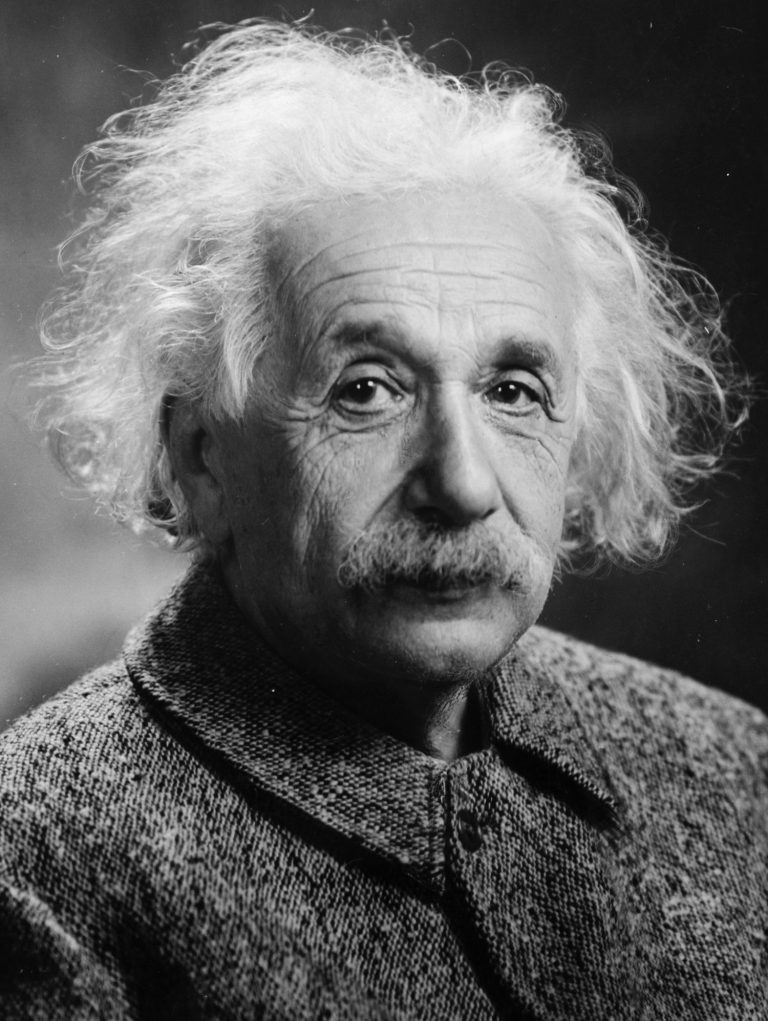
Albert Einstein
Revolutionized our understanding of physics and the universe through his theories of relativity, fundamentally changing how we perceive space, time, and gravity. His famous equation E=mc² demonstrated the relationship between mass and energy, laying groundwork for nuclear physics and modern cosmology. Einstein's work earned him the Nobel Prize in Physics and established him as one of history's greatest scientific minds. Beyond science, he became a prominent advocate for civil rights, pacifism, and Jewish causes, using his fame to speak out against racism and authoritarianism. However, his personal life included marital infidelities and a reportedly distant relationship with his children, and some of his later scientific positions, such as his rejection of quantum mechanics' probabilistic nature, were ultimately proven incorrect.
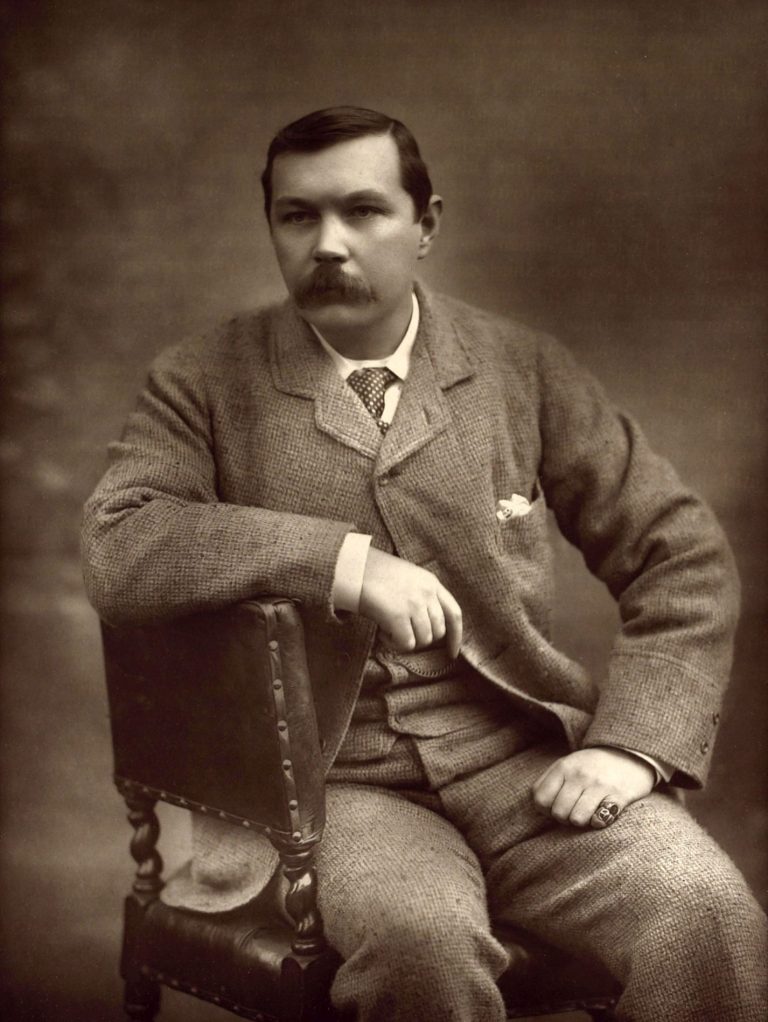
Sir Arthur Conan Doyle
Revolutionized detective fiction and created one of literature's most enduring characters through his Sherlock Holmes stories. His methodical approach to crime-solving, emphasizing observation and deductive reasoning, influenced both fictional detective work and real-world forensic investigation methods. Doyle's four novels featuring Holmes - A Study in Scarlet, The Sign of Four, The Hound of the Baskervilles, and The Valley of Fear - along with 56 short stories, established the template for modern detective fiction that countless authors have followed. Beyond Holmes, he wrote historical novels like The White Company and science fiction works including The Lost World, featuring Professor Challenger. His writing helped elevate crime fiction from pulp entertainment to respected literature. However, Doyle became increasingly obsessed with spiritualism and the occult later in life, promoting séances and claiming to communicate with the dead, which damaged his scientific credibility and led to public ridicule from former admirers.

Qin Shi Huang (秦始皇)
Unified China for the first time, establishing governmental and cultural systems that influenced Chinese civilization for over two millennia. His standardization of currency, writing systems, and measurements created the foundation for Chinese cultural unity. The construction of early sections of the Great Wall under his rule created one of humanity's most recognizable monuments. His legalist philosophy and centralized government structure became the model for future Chinese dynasties, earning him recognition as the first Emperor of China.

Mao Zedong (毛泽东)
Transformed China from a feudal society into a communist state, fundamentally altering the lives of over a billion people. His leadership of the Chinese Communist Party resulted in the establishment of the People's Republic of China in 1949, ending centuries of imperial rule. Mao's policies, including the Great Leap Forward and Cultural Revolution, had profound and often devastating effects on Chinese society. His political philosophy and guerrilla warfare tactics influenced revolutionary movements worldwide, making him one of the most significant figures of the 20th century. However, under his rule, during the Cultural Revolution, thousands of monasteries, churches, and mosques were destroyed, and many Christian believers faced censure and imprisonment, while church buildings and Bibles were attacked and destroyed

Xi Jingping (习近平)
Has consolidated power in China while expanding the country's global influence through initiatives like the Belt and Road project. His leadership has emphasized Chinese nationalism, technological advancement, and increased state control over society and the economy. Xi's anti-corruption campaigns have reshaped Chinese politics, while his approach to governance has moved China toward more centralized control. Under his leadership, there has been an intensified crackdown on Christian churches, with authorities raiding or closing down hundreds of Protestant house churches and arresting pastors, representing what many view as increased religious persecution